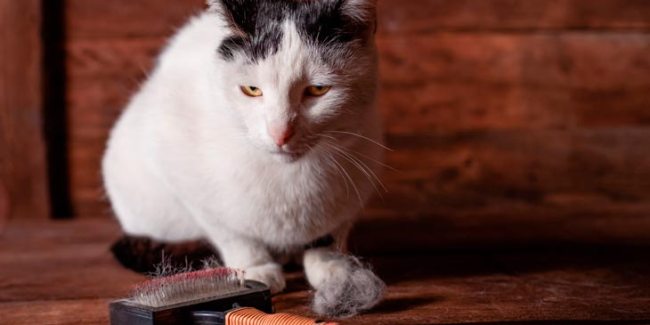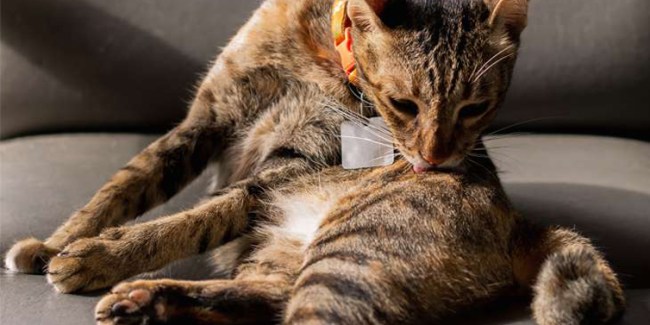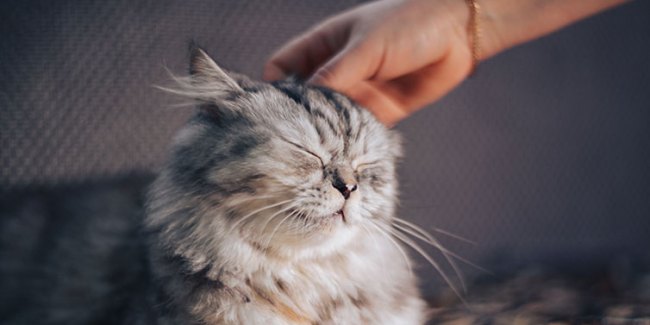Who is more intelligent– Cats or Dogs?
Who cares? Pet owners seem to, judging by the age-old, sometimes heated, arguments that this question evokes. Does it matter? Well, not really except to the folk who study these things and make a living out of it. But, let’s be honest, the more knowledge that we have of our fellow inhabitants of this planet, the better. It’s also fascinating to discover what the scientists have to say about this issue.
CATS / DOGS

Posted by bravectosouthafrica – 11 August 2021
We’ll summarise what many people know about this :
Dogs are: Cats are:
a) smart a) smart
b) highly delighted about this b) couldn’t care less
You see, we do need the scientists.
What do we mean by ‘intelligence’?

Sounds pretty simple. Obviously it involves certain abilities.
Is intelligence the ability to do maths, science, geography, learn languages – in other words, the subjects we learnt in school? What about the ability to socialise, to understand another’s pain, to appreciate art, to do gymnastics and so on? These are also important abilities.
How do you measure it? Well, perhaps an IQ test. Fair enough. But these tests are controversial in themselves and they are, of course, designed for humans.
How on earth do we measure intelligence in animals?
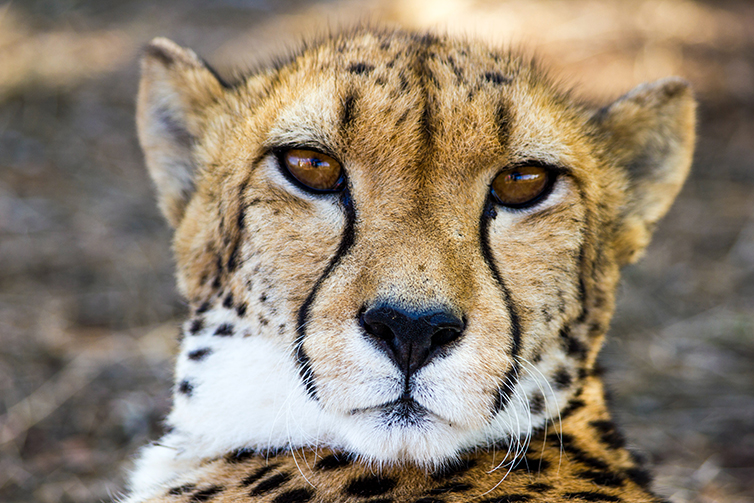
Brian Hare, the Director of Duke University’s Canine Cognition Center, says that a definition of intelligence is fundamental. You have to know what you’re measuring before you measure it. We, as humans, usually think about intelligence as a human characteristic. But different species are ‘intelligent’ in different ways, according to their species-specific need to survive. Pitting a cheetah against a domestic dog in a race would clearly be ridiculous: cheetahs need speed to catch their prey; dogs are usually handed their food by ‘mommy’. A cheetah would be rated a ‘genius’ in the field of running; a dog would be considered a ‘genius’ in the field of detecting odours.
This suggests that rating one animal over another (ie cats vs dogs), according to its ‘intelligence’, would seem pointless, right? Brian Hare would agree, pointing out that you cannot compare apples to pears.
Krystyn Vitale-Shreve, a scientist and researcher focusing on cat behaviour, describes intelligence, for any species, as falling on a spectrum. Let’s say that you are comparing hunting skills in cats, dogs and humans. Clearly, the cat will score on the higher end, humans (without a gun) on the lowest, with dogs in the middle.
Spectrum for hunting skills:
Scores 0…………..x………………….5…..x…………………..x…… 10
human dog cat
Now we’ll look at reading skills:
Scores 0………………………………………………………………x……10
cat and dog human
Her point is obvious: you cannot put different species on the same spectrum when trying to measure a skill. Evolution has ensured that all living creatures and plants are adapted to their own particular environment. You cannot compare them. Brian Hare says:
“Asking which species is smarter is like asking if a hammer is a better tool than a screwdriver.”
Bigger is Better?

Neuroscientist, Suzana Herculano-Hazel, was involved in an extensive study (published in Frontiers in Neuroanatomy), which measured the number of neurons in the cerebral cortex (the wrinkled outer layer of the brain) of dogs and cats. This was done by examining the brains of a cat, a large dog and a smaller dog. (Don’t panic. These were from corpses which were, by definition, already dead.)
What do you think they found? Which brain contained the most neurons in the cerebral cortex? Both dogs’ brains contained around 500 million neurons and the cat’s brain contained around 250 million. So, problem solved, right? More neurons should then indicate higher intelligence, as long as we accept that ‘size matters’. So, dog owners rejoice: pooches reign supreme.
Ms Herculano-Hazel also found a few surprises when her team examined the brains of a hyena, a lion, a raccoon and a brown bear. The bear had the same number of neurons as the cat; the raccoon had the same number as the dog. Raccoons are extremely smart when it comes to finding food, suggesting that the number of neurons does seem to matter. Other animal behavioural experts say that intelligence cannot be determined by neurons alone. Some dogs can remember where a treat is hidden; some cats can open doors.
What on earth are we to make of all this?
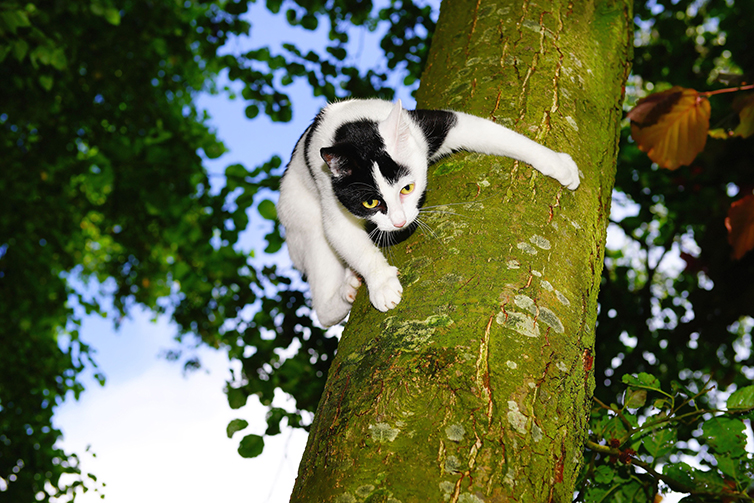
The scientists mentioned so far did not test the ‘intelligence’ of living dogs and cats with specially-designed tests for animals, nor did they observe the animals’ behaviour, for example the speed at which cats vs dogs completed a task like getting through a maze. Few studies have focused on cats because…can you guess why? Cats, as most cat-slaves will know, cannot be made to do anything that they don’t want to do. (A reminder: you can never own a cat. You are the cat’s slave and the sooner you accept that, the better life will be for all concerned.)
You know very well that cats can climb a tree in a few seconds, but try to get little gentle Fluffikins to demonstrate her climbing ability on command… well, she will quickly be transformed into a whirling dervish. This does not mean that Fluffikins is less intelligent than her canine brother, Boxer. It suggests that she is exerting her will, while Boxer is bouncing with excitement, wanting to please the humans, and completes the task on command. Is it possible that some scientists regard dogs as more intelligent because cats refuse to cooperate? Doesn’t sound very scientific, does it?
In fact, the lack of research on cats’ behaviour can, for a large part, be explained by the reluctance of cats to participate and the reluctance of researchers – who emerge from these tests bloody and shredded – to work with cats. Seriously.
Kristyn Vitale Shreve has suggested that perhaps the tests themselves, designed for dogs, should not be used on cats. Clearly, we cannot assess animals through a human lens. How then can we assess them?
Have there been no studies on cats’ behaviour?

Some brave and intrepid souls, in full PPE designed for researchers, have studied cats’ behaviour. Pisa and Agrillo conducted a study and found that cats can distinguish between two and three large dots in order to obtain food. Doesn’t sound like much, does it? But we’re talking about cats here. They also found that cats can complete specially-designed puzzles, whereas the dogs in the study (for comparative purposes) required their owners to help. (Pretty resourceful on the part of the dogs, right? But let’s not go there.)
Krystyn Vitale adopted a rescue cat, Carl. She decided to test his social cognition skills – in other words, his ability to work with humans. She put two overturned bowls on the floor and, pointing at one (presumably hiding a treat), called Carl who went to the one she pointed at. No big deal? Consider the following: he listened, he understood and did what she wanted. Dogs can do this easily of course, but it was a surprise to the researchers that cats could do it too.
How do cats and dogs compare?
Hare too did a similar test, hiding a ball under one of two cups and pointing to the ‘correct’ cup. Both cats and dogs were able to infer that the cup being pointed at was the ‘correct’ one. Inferential reasoning was required. (The animal must be able to understand, interpret, combine ideas and draw conclusions – the ball is under the cup at which the human is pointing – from the available information.) Pretty impressive, eh?
(You can find out for yourself approximately how smart your dog is through Brian’s website: Dognition)
Some dogs can also recognise emotion in people’s faces, understand some words and may have a sense of justice, right and wrong. (‘I knew I shouldn’t have taken and eaten that steak.’) When you think about it, this is incredible. And cats? Are you prepared to do the research?
Adam Miklosi, a cognitive ethologist (Don’t ask.) conducted the first study, in 2005, which compared how cats and dogs communicate with humans. He basically implemented the ‘pointing’ test and discovered that the cats performed as well as the dogs. In 2017, Vitale and Udell (6) discovered that cats seemed to prefer people to food and toys, and particularly liked humans who gave them attention. Italian scientists found that cats, like dogs, can adapt their behaviour to human emotions. In other words, far from the cold and haughty personality that many of us ascribe to cats, they could, for example, ‘read’ a human’s sadness and respond appropriately (perhaps going to sit with them?).
It was also discovered, during the ‘pointing’ test, that when the researcher gazed at the overturned bowl instead of pointing, the cats could ‘follow their gaze’ 70% of the time, like dogs. This suggests that both cats and dogs can ‘share information’ with humans.
However, it must be added that, as expected, this research was fraught with cats escaping, hiding, leaping out of mazes in experiments and researchers running out of plasters. One traumatised and bleeding researcher said that there would be more research if the cats could “just do what they were told for 2 seconds”.
It all sounds like 6-of-1, half-a-dozen of the other to me.
What do the cat owners (sorry, slaves) and dogs owners have to say?
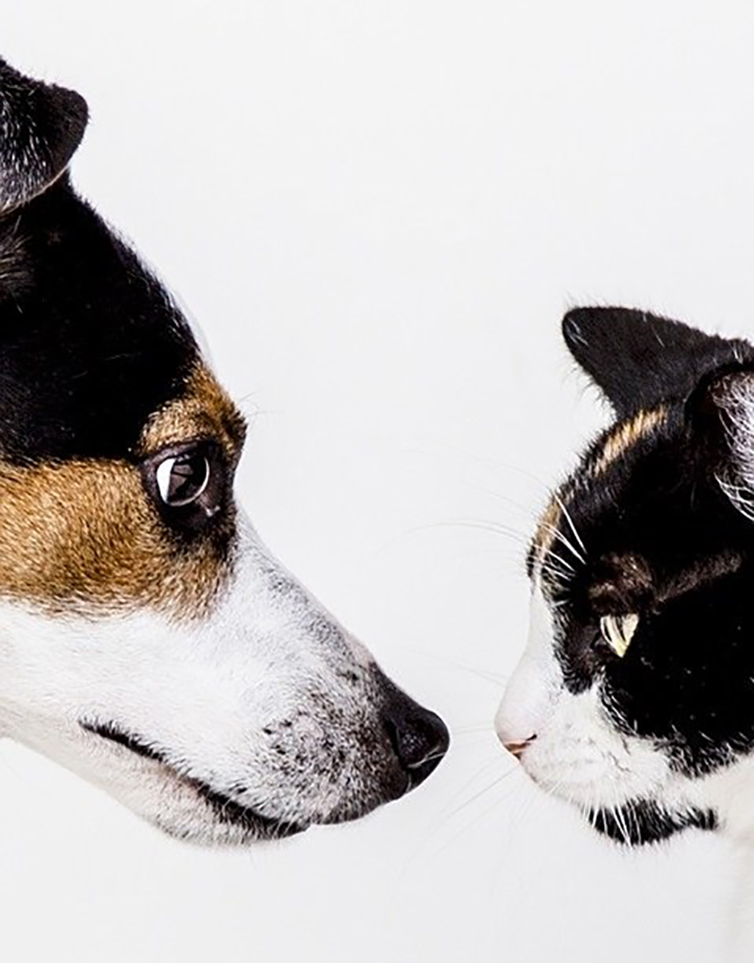
As expected, pet people are never impartial or shy about expressing their view… sorry, knowledge, with examples, that their animal’s intelligence is off the charts.
Cat slaves will explain that their Fluffikin’s aloof and proud nature is a clear indication, not of her pig-headedness but of her strong will and intelligence. Her flat refusal to do anything her slaves want her to do is very smart because it means that she never has to do anything they want. Her pickiness over her food – the most expensive from the vet, naturally – is simply an indication of her aristocratic ancestors and her refined taste. (BTW, Fluffikins was found as a kitten, in a drain.)
Dog owners will tell you that Boxer’s enthusiasm for doing tricks is because his highly-developed canine brain has worked out that this will make his owners love him more and give him an electric blanket and plenty of fillet steaks. Retrieving the ball for the 6 millionth time makes his overworked
mom indescribably happy; and barking his head off for no reason for 2 hours a day, is protecting them.
And finally …
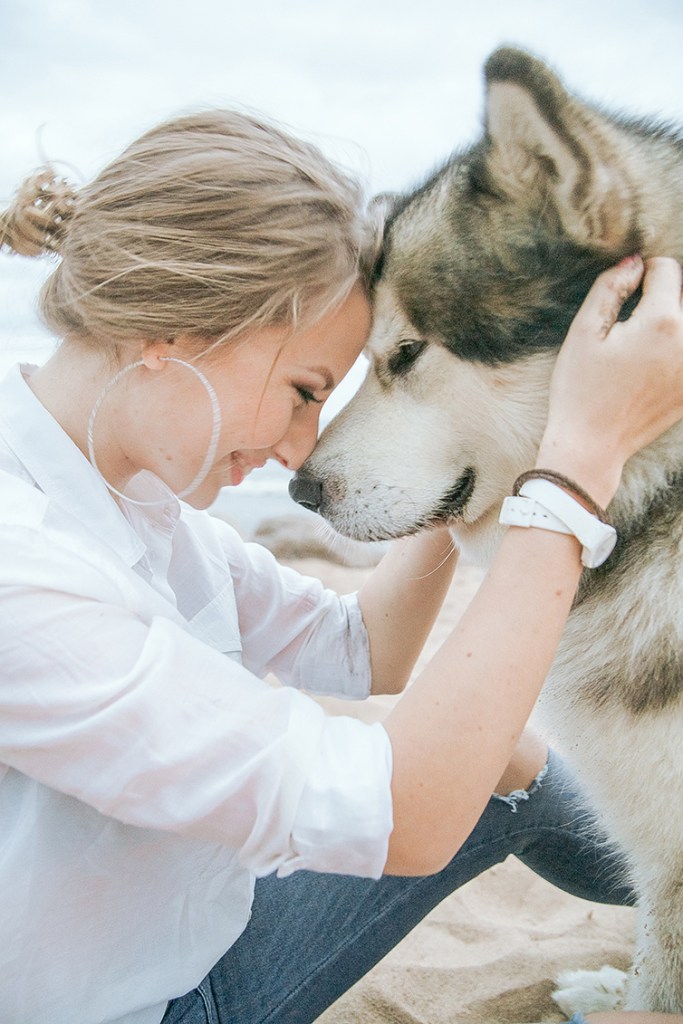
For those of you who were eagerly reading this to the end to find an answer, sorry, but at present, there really isn’t one.
Now, we’re being somewhat cynical here, but it’s not directed at the wonderful animals; it’s directed at some of the humans who seem to be under the misguided impression that their animals’ intelligence is the most important thing about them. Most owners feel privileged to be able to share the life and unique qualities of whatever animal they have chosen to adopt. They truly appreciate Boxer’s loyalty, playfulness, exuberance and unconditional love; they admire and respect Fluffikins’ regality, faithfulness, pride and yes, unconditional love.
And anyway, the jury is clearly still out as to whether cats or dogs are the more intelligent. Does it really matter? Let’s leave the final word to Mary Bly, a professor of literature;
“Dogs come when they’re called; cats take a message and get back to you.”
Enjoy your Fluffikins and/or Boxer and please keep them, and yourself, warm this month. Don’t forget their Bravecto® Tick and Flea Treatment: ticks and fleas don’t just exist in the summer; they’re in hiding. The good news is a single Bravecto® Chew treatment lasts for 12 weeks in dogs, while the Spot-On lasts for 4 months for ticks and 6 months for fleas. In cats, Bravecto® Spot-On provides 3 months of protection against ticks, fleas and ear mites while, Bravecto Plus protects for 3 months against ticks, fleas and heartworm plus it provides a treatment for intestinal worms and ear mites.
Sources:
ack.org Are dogs smarter than cats?
science focus.com. BBC Science
purina.co.uk
link.springer.com. Quantity discrimination in felines
petfinder.com Cat and Dog Intelligence
pbs.org. Which are smarter, cats or dogs?
https://www.dognition Brian Hare’s website

Subscribe to our Newsletter
Get to know your furry friend better! Sign up for all things dog- or cat-related.
The Hairy Facts about the dreaded hairball
12 April 2021
Help! My dog’s barking mad! Volume 2
12 April 2021
Your Itchy, Scratchy Cat – All About Cat Skin Problems
12 April 2021
The Dog’s Diet: A Bone of contention?
01 April 2021
Mango Fly Worms: How to Spot and Eliminate them
Posted on November 28,2019
Managing Mange And Mites In Your Dog
Posted on June 11,2018
Why Do Cats Purr and How? Learn What Your Cat Is Saying
Posted on October 14,2020
How to Get Rid of Ear Mites in Dogs
Posted on November 06,2019


